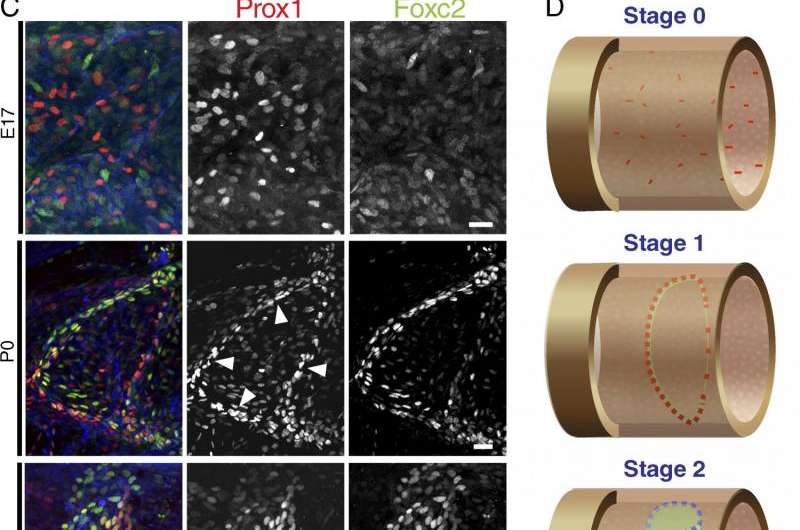Scientists identify mutations in venous valve disease

A team of scientists has discovered that mutations in the genes FOXC2 and GJC2 are associated with defects in venous valves, flaps within veins that help maintain proper blood flow.
The study, published in the Journal of Experimental Medicine and led by investigators at King's College London, was co-authored by Tsutomu Kume, PhD, professor of Medicine in the Division of Cardiology and of Pharmacology.
Normally, venous valves (VV) keep blood in the deep veins moving in one direction, back towards the heart. But when they don't function properly, blood can reflux backward and pool in the legs. Venous reflux, a common condition which affects up to 40 percent of adults, leads to chronic hypertension in the lower limbs, and can cause pain, varicose veins and skin ulceration, among other symptoms. There are currently few therapies to treat VV dysfunction.
In the current study, the scientists sought to explore the molecular mechanisms behind the development of VVs and how they maintain function—findings which could have implications for the development of future treatments.
They discovered that patients who carry mutations in the genes FOXC2, which encodes a transcription factor, and GJC2, which encodes the gap junction protein CX47, had reduced numbers of VVs, as well as shorter flaps.
By analyzing early VV development in mice, the scientists further illustrated the mechanisms behind how VVs mature, and the role that the two proteins play in the process.
More information: Oliver Lyons et al. Human venous valve disease caused by mutations in FOXC2 and GJC2, The Journal of Experimental Medicine (2017). DOI: 10.1084/jem.20160875


















